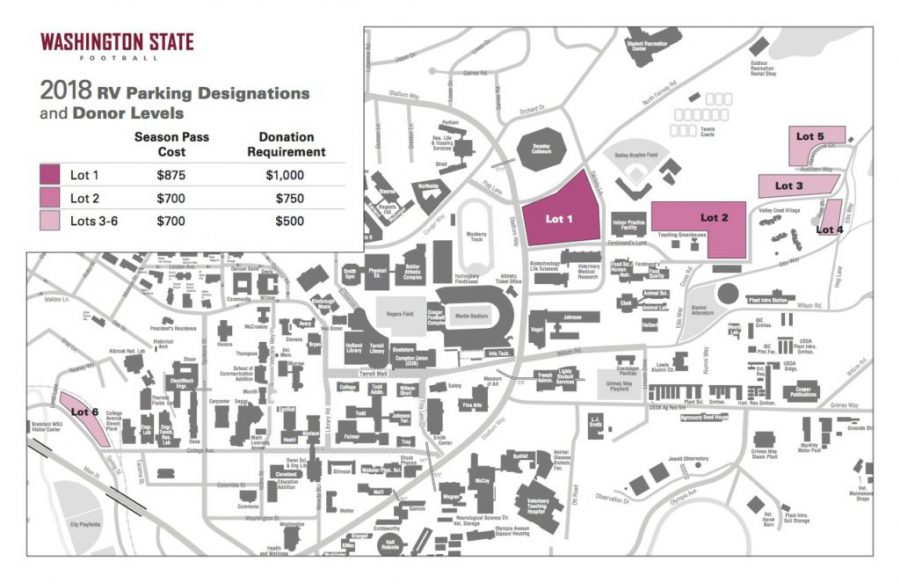It’s time to stop putting tailgaters over students
Parking lots full of cars, RVs, drunk people are noisy, hurt students, environment
A lack of enforcement for open beverages and poor management of tailgating areas creates a problem for students and the environment.
September 28, 2018
While WSU is entrenched in a large deficit, seeking profitable revenue sources should be prioritized. However, some of these sources may need a reevaluation because they make life harder for current students and employees.
An example of a profitable event WSU hosts is tailgating before fall football games. The Cougar fans who travel to Martin Stadium and campus parking lots to grill, drink and party bring in a large sum of funds for the university but come at a heavy cost for students and WSU employees who are caught in the crossfire.
While Washington state law prohibits open containers of alcohol and the university implements quiet hours throughout campus late at night, these visitors are immune to both rules and are granted a designated area for drinking. They can be as loud as they want to be without any repercussions.
As a police cadet through the WSU Police Department, I had the privilege of working security for the RV lots during the football game against Eastern Washington University. The biggest concern for me as someone responsible for safety was the fact that the lot was optimized for profit over safety, leaving little space between RVs.
This was a problem when I got a call over the radio that a woman had passed out and needed help, as my partner and I were unable to reach her. Thankfully she was okay, but the poor spacing of tailgates obstructs the view for law enforcement and impaired emergency services, making it harder to respond to these problems.
Chase Kurtz, my partner in the WSUPD cadet program and fellow student, shared a similar experience after working security for the tailgating areas during the football game.
“Some people were drinking too much but most were under control,” Kurtz said. “More security might help but it is hard to police a lot of what’s going on.”
While overselling RV spots may seem like a minor problem to some, it is another example of the university prioritizing profit over what is best for students. The fact that student parking from the Green lot is used for these events not only strips students of a service they pay for, but also leads to a hectic mess in the already-sparse parking lots on campus.
Losing a parking lot for a day in exchange for an increase in much-needed funds for the university may seem like a worthwhile trade, but the human and environmental costs are much greater than they appear to be.
During my freshman year, I dreaded my walk to the Student Recreation Center on Thursdays and Fridays before home football games because I often received catcalls and exposure to unsavory drunken behavior that open container and public intoxication laws were passed to prevent.
While the football games themselves are a hotbed for drunken fandom, the fact that WSU extends this window to an entire long weekend creates an environment that makes some students uncomfortable on their own campus and leads to an even larger amount of pollution and waste left by these visitors.
This waste and WSU’s negligence reflect how hypocritical the university is when it boasts environmentally-conscious practices like separating trash, compost and recycling. While the tailgaters are visiting, all three types of waste disposal bins are filled with cans, red beer pong cups and empty bottles of vodka.
This lack of disposal options is just another way to show the university didn’t put enough care into designing the tailgating areas.
WSU should consider student well-being and the environment before the next home game in order to mitigate environmental damage, noise and intoxication problems before they arise.

















